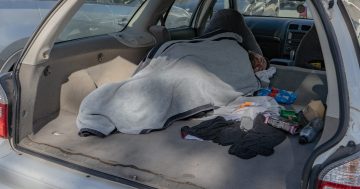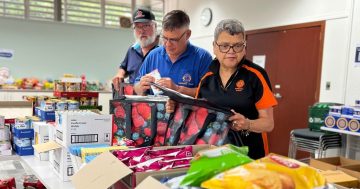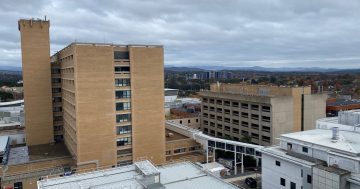
Tough times for the homeless as winter approaches with Safe Shelter not re-opening this year. Photo: File.
The ACT Government has moved to fill the gap left by Safe Shelter ACT deciding not to restart its service for the city’s homeless next month due to the coronavirus outbreak.
Safe Shelter ACT, a combined churches initiative that runs through the cooler months providing emergency overnight shelter for adult men who are homeless or at risk of homelessness, announced this week that it would not re-open as planned on 26 April.
Convenor Richard Griffiths said encouraging homeless men to congregate in shelters was contrary to the national strategy of social distancing and isolation to contain the spread of the COVID-19, and would also put volunteers at risk.
Safe Shelter ACT has also suspended any further induction courses for volunteers at this stage.
“Safe Shelter is very concerned about the situation facing the ACT’s homeless, particularly if they exhibit possible symptoms of COVID-19,” Mr Griffiths said.
“For example, how do they contact health authorities, and how can the homeless self-isolate? Where can the homeless go in a total lock-down? Then there are the issues of the closing or curtailment of many of the services upon which the ACT’s homeless depend.
“Safe Shelter hopes to be in discussion with other ACT agencies about what can be done to alleviate these problems.”
A spokesperson for Housing Minister Yvette Berry said the ACT Government stimulus package announced last week included additional funding for community service providers experiencing increased demand as a result of COVID-19, and this would include services for the homeless.
With many Canberrans suddenly without a job, the city may be in for a surge of people without a roof over their heads.
Ms Berry said CatholicCare, in particular, would ramp up its new Axial Housing pilot program to assist more people sleeping rough.
The spokesperson said both the community sector and Housing ACT had this week discussed how to provide suitable alternative accommodation options for those experiencing homelessness.
This included quarantine areas within shelters and shared living arrangements, temporary hotel accommodation, expansion of existing programs, and the bringing forward of home allocations under the Axial Housing pilot program.
“Work in this area is happening now but must carefully consider a range of associated capacity and cost factors, including off-site health and specialist wrap-around supports, security, and cascading priorities for operational and staff wellbeing,” the spokesperson said.
Ms Berry said services were already seeking out homeless people who were generally known to them.
“We’re also making sure that if there is an individual who is sleeping rough, who is diagnosed and needs to be isolated, we’ll provide accommodation,” she said.
She said specialist homelessness service Street to Home was the best organisation for the homeless or people who want to assist them to contact as it would be able to coordinate connections with CatholicCare.
Safe Shelter ACT has experienced increasing demand from the city’s rough sleepers and newly homeless in recent years, and was expanding its coverage and the number of church halls it uses.
Mr Griffiths has been calling for the government to provide more crisis shelters to get people off the streets but the government says assistance needs to provide wrap-around services and lead to permanent accommodation not just provide a temporary roof over their heads.
But Mr Griffith says Safe Shelter ACT can provide the breathing space people need to find permanent accommodation.
The Axial pilot was launched last year and will eventually result in 20 people sleeping rough on Canberra’s streets being moved into permanent housing under a two-year pilot program designed to help end the cycle of homelessness in the nation’s capital.
CatholicCare and St Vincent de Paul is partnering with Housing ACT to deliver Axial, a “housing-first program”.
Housing ACT provides the properties while two specialist homelessness services, Street to Home and ASSIST, provide flexible and individual assistance for as long as needed.
Housing ACT funds 28 specialist homelessness service providers to deliver frontline services.





















